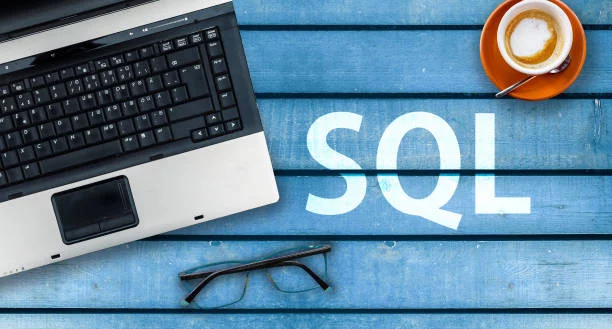Structured Query Language (SQL) is one of those skills that every data analyst, software developer, and database administrator should master. Your SQL query writing and reading skills are frequently put through rigorous testing during job interviews. Preparing you for this purpose, here are the 20 most vital SQL query interview questions and answers that will give you confidence.
Irrespective of whether you are a fresher or have experience, going over these fundamental SQL query interview questions is important. They encompass real-life scenarios, syntax questions, and frequently asked topics.
Why Focus on SQL Interview Questions?
SQL is used to retrieve and manage data in relational databases. Employers gauge your syntax, logic, and performance skills when they pose SQL query interview questions. Therefore, learning the SQL queries that are most frequently used in interviews can significantly increase your chances of getting the job.
1. What is SQL?
Answer:
SQL (Structured Query Language) is employed for communication with and manipulation of data in relational databases. This is one of the standard questions in any basic SQL query interview question list.
2. What is the difference between WHERE and HAVING clauses?
Answer:
WHERE is utilized to filter rows prior to any grouping.
HAVING is utilized to filter groups produced by the GROUP BY clause.
This is one of the widely confused SQL query interview questions and answers.
3. What does the GROUP BY clause do?
Answer:
It collapses rows having the same values into summary rows. It is mostly utilized in conjunction with aggregate functions. This is one of the most common SQL queries requested in interview for analysts.
4. How do you find duplicate records in a table?
Answer:
SELECT column_name, COUNT(*)
FROM table_name
GROUP BY column_name
HAVING COUNT(*) > 1;
This is one of the interview sql query questions that usually comes in technical rounds.
5. What is the difference between DELETE, TRUNCATE, and DROP?
Answer:
DELETE: Deletes rows individually with a WHERE clause; can be rolled back.
TRUNCATE: Drops all rows; cannot be rolled back.
DROP: Deletes the table structure.
A common one in most sql query questions and answers.
6. How can you retrieve the second highest salary from a table?
Answer:
SELECT MAX(salary)
FROM employees
WHERE salary < (SELECT MAX(salary) FROM employees);
This is one of the most frequently asked top sql queries posed in interview for database-related jobs.
7. What is a subquery?
Answer:
A subquery is a nested SQL query within another SQL query. It’s one of the most common examples in most simple SQL query interview questions.
8. How do you use CASE in SQL?
Answer:
SELECT name,
CASE
WHEN score >= 90 THEN ‘A’
WHEN score >= 80 THEN ‘B’
ELSE ‘C’
END as grade
FROM students;
Understanding this is crucial in order to answer advanced sql query interview questions well.
9. What’s the difference between INNER JOIN and LEFT JOIN?
INNER JOIN: Gives the records that have common values in both tables.
LEFT JOIN: Gives all the records from the left table and the matched records from the right. Usually used in SQL query interview questions and answers.
10. Write a query to fetch the current date in SQL?
Answer:
SELECT CURRENT_DATE;
This is one of the most common basic SQL query interview questions for beginners.
11. What is normalization?
Answer:
Normalization is a process of structuring data to remove redundancy and enhance data integrity. It usually comes in SQL query questions for beginners.
12. How do you retrieve only unique values?
Answer:
SELECT DISTINCT column_name FROM table_name;
This ranks among the top basic SQL query interview questions.
13. How do you find the number of records in a table?
Answer:
SELECT COUNT(*) FROM table_name;
This ranks among the top basic SQL query interview questions.
14. How do you rename a column in the result set?
Answer:
SELECT column_name AS new_name FROM table_name;
This is one of the simpler SQL query interview questions to test syntax knowledge.
15. What is a primary key?
Answer:
A primary key is used to uniquely identify every single record in a table. It is not allowed to have NULL or duplicate values. It is an important thing to keep in mind in the course of SQL interview questions and answers.
16. Write a query to find the employees whose name starts with ‘A’.
Answer:
SELECT * FROM employees WHERE name LIKE ‘A%’;
This type of query is often featured in the top SQL queries asked in interview sessions.
17. How do you update a record in SQL?
Answer:
UPDATE employees SET salary = 60000 WHERE emp_id = 101;
Interviewers frequently ask this in basic sql query interview questions.
18. How can you join three tables in a single query?
Answer:
SELECT *
FROM table1
JOIN table2 ON table1.id = table2.id
JOIN table3 ON table2.id = table3.id;
Joining multiple tables is a key part of SQL query interview questions for experienced candidates.
19. What is the IN clause used for?
Answer:
The IN clause is used to specify multiple possible values for a column in a WHERE clause.
Example:
SELECT * FROM students WHERE grade IN (‘A’, ‘B’);
This falls under basic SQL query interview questions that test filtering logic.
20. What is the difference between UNION and UNION ALL?
UNION: Merges result sets and eliminates duplicates.
UNION ALL: Merges result sets and preserves duplicates.
This is one of the most confusing yet important questions in SQL query interview questions and answers.
Final Thoughts
SQL is still one of the most fundamental skills required for data, software, and analytics positions. Preparing these 20 most fundamental SQL query interview questions and answers puts you ahead of your competition. Practice creating these queries yourself and recognize the logic behind them.

Lexy Summer is a talented writer with a deep passion for the art of language and storytelling. With a background in editing and content creation, Lexy has honed her skills in crafting clear, engaging, and grammatically flawless writing.



